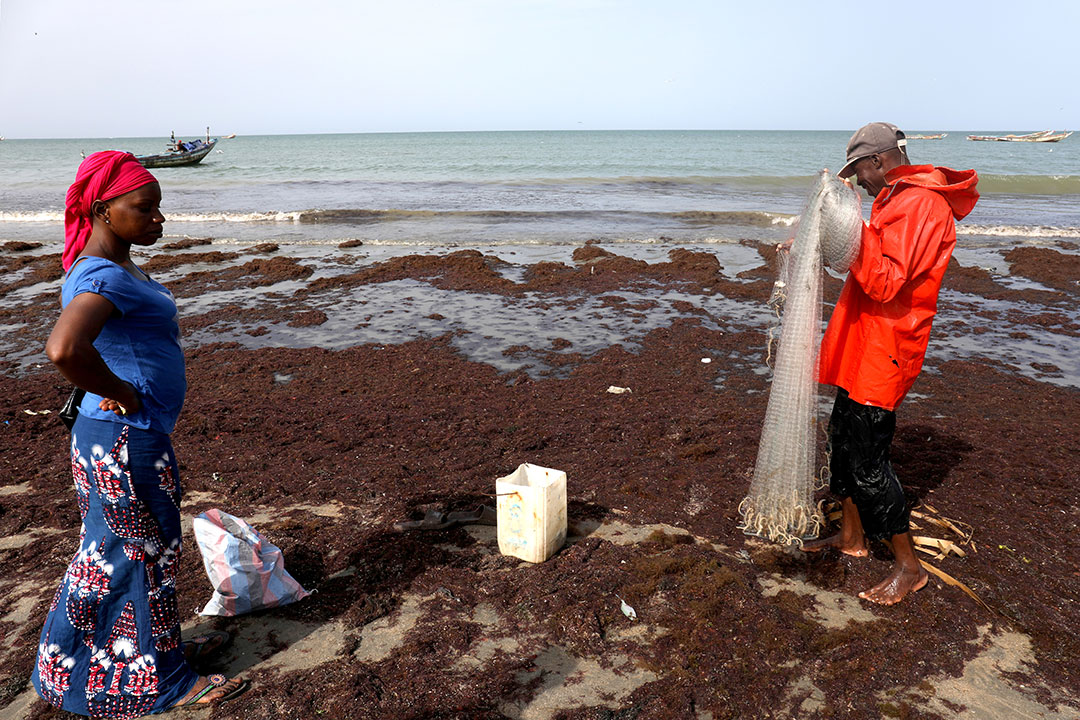ADF STAFF
Lamin Sanyang has had enough.
A commercial fisherman in The Gambia, he is frustrated to the point of quitting the trade over Chinese interference in the country’s waters. Whenever he and his crew put out nets, he said, Chinese trawlers cut them while fishing illegally. Other local crews say foreign trawlers attack their boats when they check their nets.
“It has been happening several times we have [gone] fishing and coming back with empty hand[s],” Sanyang told the Gambian newspaper The Voice.
Fish seller Fatoumata Conteh said problems with Chinese trawlers have gotten worse recently, despite the government’s recent partnership with Sea Shepherd Global, an international nonprofit organization, to eradicate illegal, unreported and unregulated (IUU) fishing.
“We are facing limitless difficulties, as [we go] about six or seven days without having fish,” Conteh told The Voice.
As one of the continent’s smallest countries with limited natural resources, The Gambia is heavily dependent upon the sea to provide protein-rich food to sustain its people. The Gambia’s Atlantic waters, which lap onto silvery beaches lined with coconut palms, normally are rich in sardinella and other small fish. Larger fish such as red snapper and barracuda also have been plentiful in the past.
Chinese overfishing in areas reserved for artisanal fishermen is harming the nation’s environment and marine ecology, while depriving locals of food and jobs. The livelihoods of more than 200,000 Gambians depend on local fisheries.
Much of the fish caught in Gambian waters now is unloaded at three local, Chinese-owned factories that make fishmeal, which is made by drying and grinding fish or fish waste. It often is sold as a powder used in feed for poultry, pigs and farmed fish. IUU fishing helps sustain the Chinese factories.
Gambians initially were hopeful the factories would provide jobs, but those hopes faded quickly. The factories employ only a few dozen workers, and they emit harmful pollution.
In the small coastal town of Gunjur, residents say dead whales, turtles, dolphins, eels and rays have been washing ashore since the Chinese-owned Golden Lead fishmeal factory opened in 2016. A year after the factory opened, a nearby lagoon changed color, and its birds and fish started dying, according to Quartz Africa.
The water was found to be high in phosphates, and local environmentalists blamed the factory for dumping wastewater into the ocean. The Gambian National Environment Agency ordered the factory’s waste pipe removed, but after an extended period of inaction, local residents and police removed it themselves.
A couple of months later, the factory installed a new pipe — at the center of Gunjur Beach. A Chinese flag was raised during the process.
“When they planted a flag on our beach like that, we really saw this as an insult,” one resident told Quartz Africa. “While we are not against investment in the area, we do ask that these things are undertaken responsibly and that they do not cause harm to our people or the environment.”
Since The Gambia’s government partnered with Sea Shepherd in September 2019, at least 15 people have been arrested on charges related to illegal fishing, many of them Chinese. The COVID-19 pandemic temporarily forced crews — including law enforcement agents from The Gambia Navy and the Gambian Department of Fisheries — into temporary quarantine, allowing illegal trawling to continue.


Comments are closed.